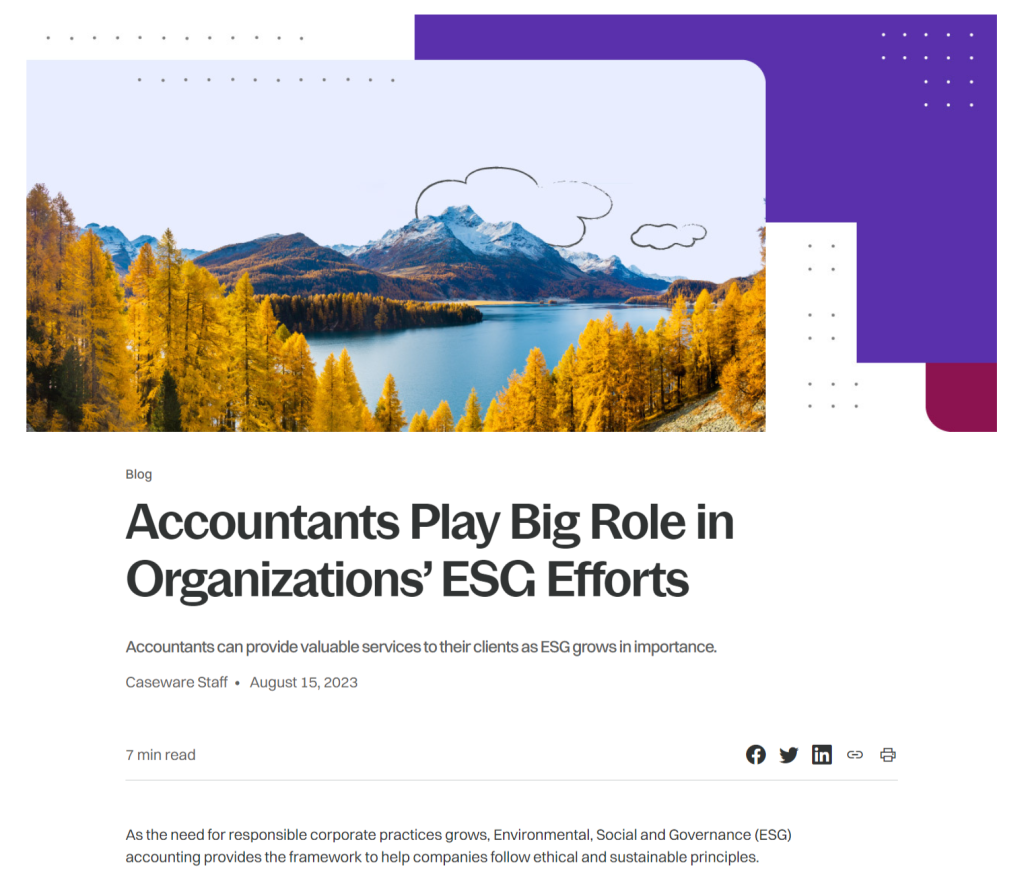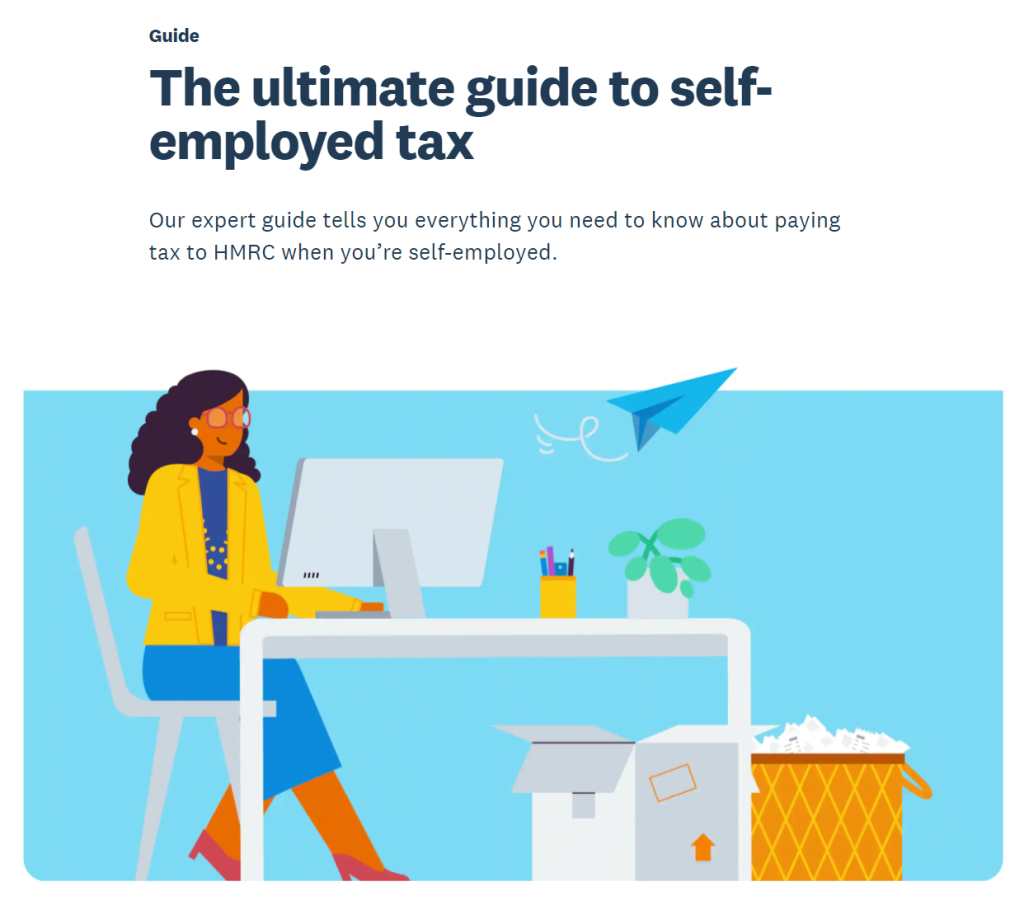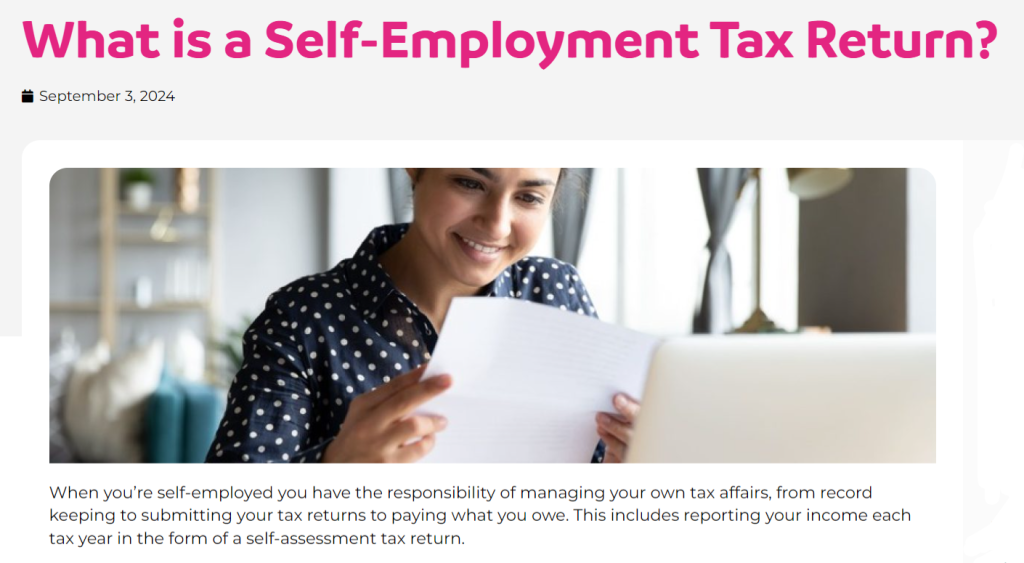Content creation is a powerful way for accountants to connect with new and existing clients.
Well-crafted blog posts are a great way of showcasing your expertise and improving your online presence – helping you build trust, attract new clients and engage your existing ones. Read on for 14 essential blog posts every accountant should write and share:
1. Industry news
Staying informed on the latest developments in the accounting and finance industry is crucial for both your firm and your clients. Write blog posts that summarise and explain key industry news, such as tax law changes, financial regulations or what HMRC is up to, like AccountingWEB in this example:

By keeping your clients up to date, you’ll reinforce your role as a knowledgeable and proactive partner who helps them navigate the complexities of the financial landscape. This type of content positions your firm as an authority in the industry and builds trust with your audience.
2. Governmental impact
Government regulations, especially those related to taxes and financial policy, often leave business owners unsure about how new changes will affect them. Including blog posts on your website, detailing how recent government announcements impact your clients, will be highly valuable. Break down complex announcements on things such as budget updates, relief measures or tax code changes into simple, actionable takeaways.
Doing this will make potential customers see your firm as an up-to-date, reliable source of essential financial information.
3. Understanding tax codes
For many individuals and small business owners, tax codes can be a confusing mix of numbers and letters.
Write a guide to demystify tax codes and explain how they impact net pay, allowances and deductions. Include practical steps on how to review and adjust tax codes and offer to assist readers in making any necessary changes.
4. The role of AI in accounting
Artificial intelligence (AI) is revolutionising many industries, including accounting. Writing about how AI is being integrated into accounting tasks – for example, automated invoicing, data entry and financial forecasting – will position your firm as a tech-savvy service provider.
This type of post can also explore how AI benefits clients by streamlining processes and reducing the risk of human mistakes.
5. A day in the life of an accountant
Why not give a glimpse into the responsibilities of accountancy by writing about the daily tasks of an accountant?
This is a good way to humanise your role and show prospective clients the behind-the-scenes work that keeps their financial health in good hands. It also offers a personal touch, allowing clients to connect with you on a deeper level.
6. Business guides and insights
Help your clients thrive by sharing in-depth business guides and insights that cover key financial topics relevant to their industries. Provide actionable advice that small business owners and entrepreneurs can implement to strengthen their financial health, such as this example by FreeAgent:

These posts can include best practices, financial planning tips and strategies for growth, positioning your firm as a valuable resource for navigating the complexities of running a successful business. Offering your expertise in this way can deepen client relationships and attract new prospects.
7. Step-by-step tutorials for accounting software
Cloud-based software has become essential for many modern accounting tasks and tools such as Xero, QuickBooks and Sage are used regularly. This is because many business owners try to handle their own finances, despite struggling to use the software efficiently.
Don’t just dismiss these tools as an alternative to your services. Offer your readers practical value by including a step-by-step blog post on how to navigate popular accounting platforms. You can also highlight how your services complement these tools, showing how your expert guidance is still as valuable as ever.
8. Explaining accounting terminology
For those outside of the accounting profession, technical terms can be overwhelming. Consider a blog series that explains key accounting terminology – like ‘depreciation,’ ‘capital gains’ or ‘accruals’ in plain English.
Not only will this help clients better understand their own finances, but it will also show your firm is approachable and client-focused.
9. How ESG is shaping modern accounting
Environmental, social and governance (ESG) factors are becoming more significant in business strategy and reporting. Providing blog posts – like this example by Caseware – about how ESG influences financial reporting and compliance will help you tap into this growing trend.

If you want to integrate sustainability into your accounting practices, insights from blog posts will be extremely helpful for your clients – covering everything from tax planning to investment decisions.
10. Client success stories
Showing real-world examples of how your accounting firm has helped clients is a great way to build trust.
Case studies provide a narrative that illustrates how your expertise makes a tangible difference. Whether it’s helping a startup navigate financial hurdles or a longstanding business with its tax strategies, success stories resonate with potential clients who face similar challenges.
11. Tips for tax season
As tax season approaches, individuals and businesses alike begin scrambling to get their financials in order. This is where businesses like Xero can come to the rescue with help guides:

Writing a blog post that offers practical tips on how to prepare for tax filing, along with common mistakes to avoid, can be a valuable resource during this stressful time. Consider offering downloadable checklists or resources that can help to simplify the process.
12. Frequently asked questions
As an accountant, you likely receive many of the same questions from clients about taxes, business expenses and financial planning. A blog post putting together the most frequently asked questions, and your detailed responses can be a time-saver for both you and your clients. Or write separate blog posts for questions that require a bit more depth to answer.
Here’s an example by Gorilla Accounting. There are 590 searches on month on Google in the UK for “self employment tax return”, making this a popular topic.

This content can be a valuable reference point for readers and improve your website’s search rankings.
13. Financial planning for small businesses
Many small business owners struggle with long-term financial planning and focus on day-to-day operations instead. Writing a blog post that offers simple, practical tips for budgeting, cash flow management and forecasting can be incredibly useful.
You can also explain the importance of setting financial goals and how accountants can help create a plan to achieve them.
14. Meet the team: the faces behind your finances
Sharing blog posts that introduce your team members is a fantastic way to humanise your accounting firm and build stronger client relationships. For example, take a look at this example by The Accountancy Partnership, featuring a junior team member:

Write a series of spotlight posts that highlight the background, expertise and personality of each team member, from senior accountants to support staff. Include personal anecdotes, their specialisations and even hobbies to show the human side of your business. This can foster trust and make clients feel more connected to the people managing their finances, encouraging long-term partnerships.
Engaging blog content for your business
Creating engaging and informative blog content tailored to your audience’s needs can significantly boost your firm’s online presence and engage with clients.
From simplifying tax codes to discussing the latest trends in accounting software and AI, these blog posts will help you establish authority, build trust and grow your client base.
But there are a few barriers that can stand in your way as an accountant. You probably don’t have the time to spend writing blog posts, nor the experience in writing to make them the best they can be.

